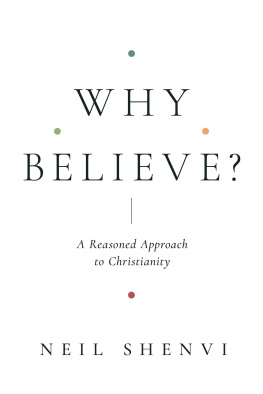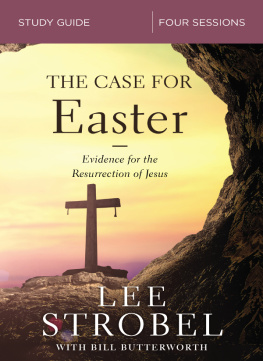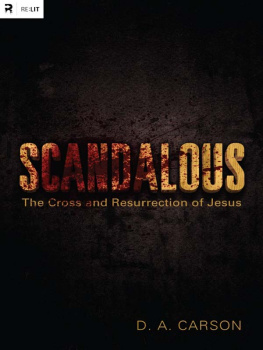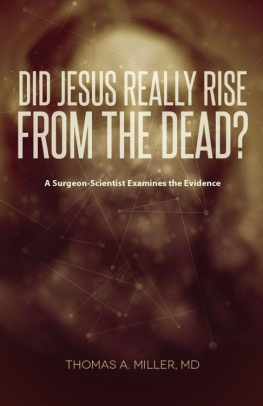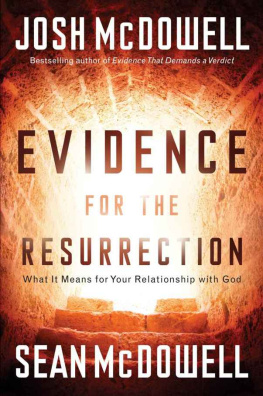
Published 2012 by Prometheus Books
Atheism and the Case against Christ. Copyright 2012 by Matthew S. McCormick. All rights reserved. No part of this publication may be reproduced, stored in a retrieval system, or transmitted in any form or by any means, digital, electronic, mechanical, photocopying, recording, or otherwise, or conveyed via the Internet or a website without prior written permission of the publisher, except in the case of brief quotations embodied in critical articles and reviews.
Trademarks: In an effort to acknowledge trademarked names of products mentioned in this work, we have placed or after the product name in the first instance of its use in each chapter. Subsequent mentions of the name within a given chapter appear without the symbol.
Cover image 2012 Media Bakery/David Chmielewski/James Mclaughlin
Cover design by Jacqueline Nasso Cook
Inquiries should be addressed to
Prometheus Books
59 John Glenn Drive
Amherst, New York 142282119
VOICE: 7166910133
FAX: 7166910137
WWW.PROMETHEUSBOOKS.COM
16 15 14 13 12 5 4 3 2 1
McCormick, Matthew S., 1966
Atheism and the case against Christ / by Matthew S. McCormick.
p. cm.
Includes bibliographical references and index.
ISBN 978-1-61614-581-1 (pbk.: alk. paper)
ISBN 978-1-61614-582-8 (ebook)
1. Atheism. 2. ChristianityControversial literature 3. Christianity and atheism.
I. Title.
BL2747.3.M353 2012
211'.8--dc23
2012013314
Printed in the United States of America on acid-free paper



T his book is the product of decades of thought, study, debates, lectures, arguments, research, and blogging. There is a long list of people to whom I owe thanks for helping me develop and improve my thinking about the Christian religion.
Several people engaged in careful readings of drafts and provided me with valuable comments, particularly Russell DiSilvestro, Josh May, Ricki Monnier, and Eric Sotnak. Thousands of blog readers have read and commented on early versions of my ideas at the website Atheism: Proving the Negative (provingthenegative.com). Their feedback has been very useful to me.
My Philosophy Department colleagues at California State University have been tremendously helpful. We have created a positive and constructive, yet highly critical atmosphere where we can have protracted and serious philosophical disagreements while remaining friends and collaborators. I owe the maturity of my views to their vigorous resistance. Thomas Pyne, Scott Merlino, Russell DiSilvestro, Randy Mayes, and Christina Bellon deserve special thanks for that. Richard Carrier, John Loftus, and many others are also owed thanks. I would also like to thank my family for their support, encouragement, and inspiration.

INTRODUCTION
I n this book, I present a case for an unpopular view: we should not believe that Jesus was resurrected from the dead. I also provide an expansion of the arguments against Christianity justifying atheism.
The argument concerning the resurrection can be put simply, although the details will be complicated: we have too little information of too poor quality to warrant our believing that Jesus returned from the dead. One problem for the Christian is internal: believing in Jesus divinity on the basis of the Gospels in the New Testament cannot be reconciled with the standards of evidence that believers employ in other comparable cases. If we look at the sorts of claims Christians and non-Christians typically accept or reject and the evidence we take to justify those attitudes, some general principles of reasonableness emerge. If these epistemic standards are applied objectively and without bias to the Jesus case, it is clear that we should reject it. Inattention, inconsistency, desire, cultural influences, various aberrations in the human cognitive system, fallacies, and a host of other factors foster this double standard. We will consider a number of these parallel cases where it is clear by the conventions we already employ that we should not believe Jesus came back from the dead. In effect, these cases show that you already don't believe in Jesus, you just don't know it yet.
The case against Christ can also be made by considering the implications of recent research in psychology and cognitive science. Our information about Jesus is communicated to us by the early Christians. But there are good reasons for not believing these early believers. Problems concerning belief formation, human cognitive quirks, memory, social influences, and other psychological issues undermine the reliability of the ancient information we have about Jesus. And since we cannot trust the sources giving us the information, it is not justified or reasonable to accept it.
Some of the problems with believing are epistemological. That is, we have learned that a well-justified conclusion must be based upon a wide, objective aggregation of evidence followed by a balanced evaluation that adequately explores possible counterevidence, alternative hypotheses, and error checking. The process whereby the Jesus story was recorded and transmitted to us fails miserably on these criteria. The religious goal of fostering belief is at odds with the epistemological goal of believing only those conclusions that are justified by the evidence.
There are a number of philosophical reasons that fortify the case against belief. A God who performs miracles to accomplish his ends, prove his divinity, and foster belief is the foundation of the Christian religionas well as many other religions. But we will discover that miracles are incompatible with the sorts of actions a being such as God would perform. It does not make sense for God to act, accomplish his ends, or express his will by means of miracles. The notion of a violation of the natural order or interruptions of physical law cannot be reconciled with an almighty, all-knowing being. God would not do miracles.
Once the full list of issues is developed, the case against Christ is compelling. Given what we know, the case for Christ is orders of magnitude weaker than it should be to justify believing.
THE CASE FOR ATHEISM
For billions of people, the origin of their belief in God was the Christian religion. Arguably, being a Christian requires, at a minimum, that one believe that Jesus was a divine being who was resurrected from the dead. So, once the arguments for rejecting the resurrection are in place, one of the major pillars of support for modern belief in God will be removed. By extension, we will see that similar worries undermine a long list of other human religious beliefs. Our evidence for concluding that they are of supernatural rather than natural origin is poor in quality and quantity. We already routinely reject other, comparable supernatural claims, even when the evidence is far better. Various quirks of the human cognitive system suggest that neurobiology, psychology, ignorance, fallacies, and historical forces have more to do with the formation of ancient religions than bona fide encounters with the Almighty. That is, for roughly the same reasons, we should reject the authenticity of the ancient religions that claim to be founded on real encounters between God and humanity.
Next page


